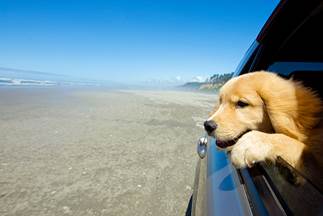Maintaining a healthy weight is important for all of us. Dogs, like humans, are prone to gaining a little extra weight and it can be hard to get shed those extra kilos. Kim Tayloe tells Pet Problems Solved how to do it…
The Importance of Maintaining a Healthy Weight for Your Dog and How to Do It
We don’t call them puppy dog eyes for nothing! It seems almost impossible to resist that adorable face and pleading eyes when you’re indulging in a delicious meal and your dog wants in on it. But you need to! Feeding your dog table food is just one of the many ways that they can put on excess, unwanted weight. And while your pooch doesn’t need to watch their figure for bathing suit season, you do need to keep their weight in-check. Here’s why it’s so important for your dog to maintain a healthy weight and tips for achieving it.
Keep Your Dog Active
In both dogs and humans alike, excess weight makes it difficult to exercise and even perform everyday tasks. Overweight pets have a difficult time navigating things like climbing into the family vehicle for fun family car rides or even getting up onto the couch or bed for nighttime snuggles. An overweight dog might have trouble running, taking walks, playing catch, and getting the adequate exercise they need to stay healthy and strong. This creates an unhealthy cycle. Your dog needs exercise to stay healthy, burn off excess energy, and maintain a healthy weight, but if they’re already overweight, this can be difficult. And even painful. Excess weight in dogs causes arthritis and heart complications.
Lowers the Risk of Health Complications
There are a long list of health complications that accompany overweight dogs. Here are just a few.
Diabetes
This is one of the most common complications associated with obesity in dogs. Many overweight pups develop diabetes mellitus, also known as sugar diabetes. When a dog has diabetes mellitus, it creates a higher demand for insulin. If your dog’s body can’t produce enough insulin or their pancreas (which naturally produces insulin) burns out, diabetes can form.
Difficulty Breathing
When your dog is carrying excess weight, it makes all of their organs work harder, including the lungs. The lungs can’t expand properly in your dog’s chest due to crowding from fat and extra tissue. Fat may also push against your pup’s diaphragm in their stomach, putting additional pressure on their chest and constricting the lungs. This makes it difficult for your dog to breathe properly, both at play and at rest.

Heat Intolerance
Dogs pant when their hot to help cool down their body. If you notice your overweight pooch panting more than usual, it’s probably because they’re carrying unnecessary weight. Fat helps insulate an animal’s body, trapping body heat inside. This is fine during the winter months, but even so, excess body fat will cause your dog to overheat much faster than a dog of a healthy weight. And since dogs don’t have sweat glands like humans, it will lead to discomfort.
Heart Disease
Just as the lungs are negatively affected by obesity, your dog’s heart may also be at risk. This is caused by high blood pressure. When your dog carries unnecessary weight, their heart has to work harder to function and pump blood to extra tissues in the body. This boosts their blood pressure and can lead to congestive heart failure.
Digestive Issues
It’s no surprise that obesity in dogs can lead to digestive and gastrointestinal complications. The most common ailment is constipation, as the digestive system struggles to work properly. Another unpleasant side effect is increased flatulence.
Reproductive Issues
Attention all breeders! Excess weight can actually compromise your pups reproductive system. A condition called dystocia makes it difficult for overweight females to give birth naturally. In many cases, they require veterinary intervention or a cesarean section.

How to Maintain a Healthy Weight in Your Dog
Now that you know how obesity can negatively impact your dog’s quality of life, here are a few tips for helping your pooch maintain a healthy weight.
- Promote regular activity and exercise
- Don’t give them table or “people” food
- Choose the right dog food for their size and breed
Choosing the right dog food can be tricky, so be sure to consult your veterinarian and check out this article for additional information. Take your pooch for regular walks or plan visits to the dog park. A fenced in yard is another great way to let your dog run freely, play, and burn some energy and calories!
It’s not always easy to make sure your dog is getting adequate exercise or to deny that adorable face as they beg at the dinner table, but it’s necessary. Obesity in dogs can cause a long list of health complications and even death. Think of maintaining a healthy weight for your pup as showing them how much you care and helping improve their quality and longevity of life.
Weight issues
Obese dogs could have similar personality traits to overweight humans
Shed those extra kilos! Help your pet lose weight
Overweight dogs more likely to have behaviour problems
Is your horse the right weight?





